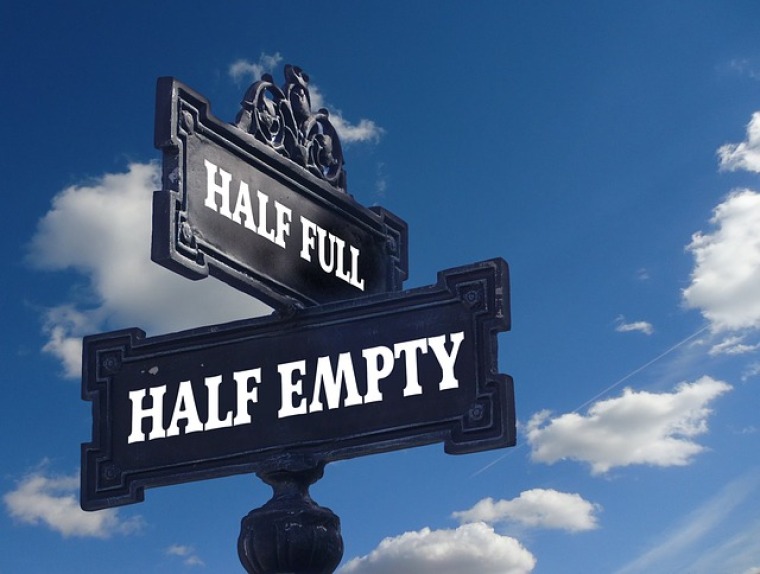Fewer people believe in heaven and hell than Britons think, survey finds

Not as many people believe in heaven and hell as British people think, according to a new survey that highlights the inaccuracy of the online community's perception of key global issues.
According to a study conducted by Ipsos MORI, British people have guessed that 45 percent of people believe in Heaven and 38 percent believe in Hell.
However, representative surveys have shown only 32 percent actually believe in Heaven and only 21 percent think that there is a hell.
The report has shown that Britons are more accurate in their guesses at belief in God. The average guess was that 43 percent of British people believe in God, when 39 percent actually do.
On terrorism, only 15 percent of Britons have correctly guessed that deaths from terror attacks were lower between 2002–2016 than they were between 1985–2000. Forty-seven percent believe that deaths from terrorism were higher over the last 15 years and 29 percent guessed they were about the same, although actual figures have shown they were significantly lower, down from over 300 to 62.
The findings of the survey, titled "Perils of Perception Survey 2017," were based on 29,133 interviews conducted in 38 countries between Sept. 28 and Oct. 19.
In Japan, people have guessed that 42 percent believe in Heaven when figures show only 19 percent actually do.
The pattern is reversed in South Africa, where the average guess is that 67 percent believe in Heaven, but survey results show the actual figure is 84 percent.
A similar pattern of significant errors in both directions is repeated in other countries. In Spain, the average guess was that 43 percent of Spaniards believe in Hell when only 19 percent actually do.
Belief in God was also split in some countries, such as Sweden, where people think that 37 percent believe in God, when the actual figure is 22 percent.
Sweden, however, is listed as having the most accurate perceptions about key global issues and the features of the population, followed by Norway and Denmark. South Africa is the most inaccurate, with Brazil and the Philippines also high up on the list.
The survey also found that inaccuracies in people's perception of other issues such as teenage pregnancy, murder rate, suicide, alcohol use and health.
"Across all 38 countries in the study, each population gets a lot wrong. We are often most incorrect on factors that are widely discussed in the media, such as deaths from terrorism, murder rates, immigration and teenage pregnancy," Bobby Duffy, managing director of Ipsos MORI Social Research Institute said, according to Sputnik News.
Duffy surmised that people have negative perceptions about key issues because "we overestimate what we worry about: the more we see coverage of an issue, the more prevalent we think it is, especially if that coverage is frightening or threatening."
"Our brains process negative information differently — it sticks with us and affects how we see realities," he added.
 Christians don't have to affirm transgenderism, but they can’t express that view at work: tribunal
Christians don't have to affirm transgenderism, but they can’t express that view at work: tribunal Archaeology discovery: Medieval Christian prayer beads found on Holy Island
Archaeology discovery: Medieval Christian prayer beads found on Holy Island Presbyterian Church in America votes to leave National Association of Evangelicals
Presbyterian Church in America votes to leave National Association of Evangelicals Over 50 killed in 'vile and satanic' attack at Nigerian church on Pentecost Sunday
Over 50 killed in 'vile and satanic' attack at Nigerian church on Pentecost Sunday Ukrainian Orthodox Church severs ties with Moscow over Patriarch Kirill's support for Putin's war
Ukrainian Orthodox Church severs ties with Moscow over Patriarch Kirill's support for Putin's war Islamic State kills 20 Nigerian Christians as revenge for US airstrike
Islamic State kills 20 Nigerian Christians as revenge for US airstrike Man who served 33 years in prison for murder leads inmates to Christ
Man who served 33 years in prison for murder leads inmates to Christ


 Nigerian student beaten to death, body burned over ‘blasphemous’ WhatsApp message
Nigerian student beaten to death, body burned over ‘blasphemous’ WhatsApp message 'A new low': World reacts after Hong Kong arrests 90-year-old Cardinal Joseph Zen
'A new low': World reacts after Hong Kong arrests 90-year-old Cardinal Joseph Zen Iran sentences Christian man to 10 years in prison for hosting house church worship gathering
Iran sentences Christian man to 10 years in prison for hosting house church worship gathering French Guyana: Pastor shot dead, church set on fire after meeting delegation of Evangelicals
French Guyana: Pastor shot dead, church set on fire after meeting delegation of Evangelicals ‘Talking Jesus’ report finds only 6% of UK adults identify as practicing Christians
‘Talking Jesus’ report finds only 6% of UK adults identify as practicing Christians Mission Eurasia ministry center blown up in Ukraine, hundreds of Bibles destroyed: 'God will provide'
Mission Eurasia ministry center blown up in Ukraine, hundreds of Bibles destroyed: 'God will provide' Church holds service for first time after ISIS desecrated it 8 years ago
Church holds service for first time after ISIS desecrated it 8 years ago Burger King apologizes for 'offensive campaign' using Jesus' words at the Last Supper
Burger King apologizes for 'offensive campaign' using Jesus' words at the Last Supper Uganda: Muslims abduct teacher, burn him inside mosque for praying in Christ’s name
Uganda: Muslims abduct teacher, burn him inside mosque for praying in Christ’s name